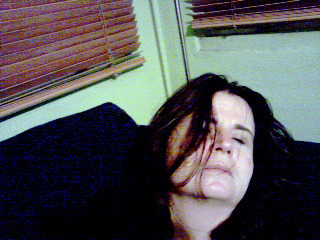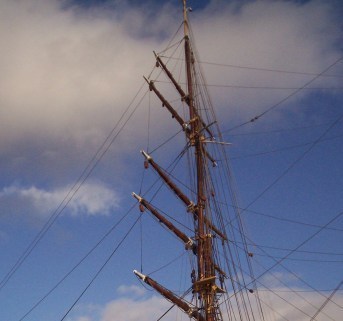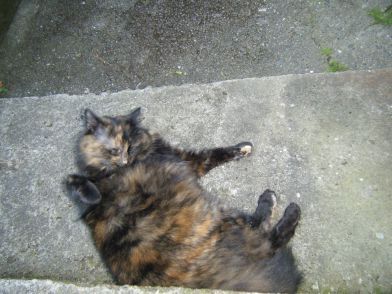Janis Freegard's Blog, page 18
August 7, 2013
Forthcoming readings – Whanganui & Dunedin
I have a couple of readings coming up that I’m very excited about. The first is at the Sarjeant Gallery in Whanganui, part of a celebration of Robin Hyde‘s work, in association with National Poetry Day (although it will actually be the day after National Poetry Day).
Sat 17th Aug, 2:30 pm
Sarjeant Gallery
A celebration of the work of Robin Hyde with readings by Glenn Colquhoun, Janis Freegard, Redmer Yska & Dr Mary Paul
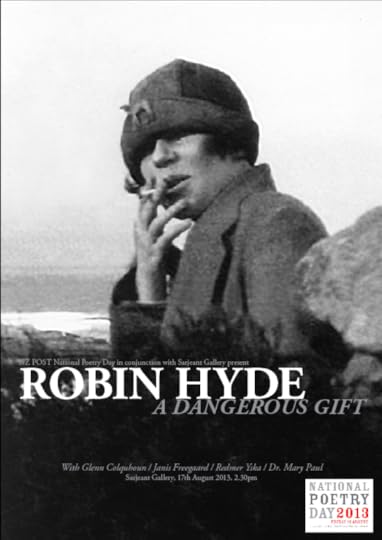
The second is in Dunedin, at Circadian Rhythm. It will also feature David Howard and an open mic.
Weds 21st August 8pm
Circadian Rhythm cafe
Dunedin



July 29, 2013
Tuesday Poem – Attack of the Smiley Emoticons, by PS Cottier
Attack of the smiley emoticons
You try smiling like a sunny peach at the end
of their inanities, in compulsory cuteness.
You try making their
Nullaboring flat prose
all bouncy and comely year after vacant year,
bright wattle flowers sentenced to toil.
We’ve grinned and pouted and sickened,
yellow with the jaundice of erasing mediocrity,
our insides rotting through foul overuse.
This was the entry that did it for me:
He’s REALLY cute and we’re going OUT!!!
and then
her hands went to plant me like a bulb,
blooming her no-news into freshness.
I leapt from the screen, quiet U of mouth
transfOrmed into gaping ORIFICE
with shark Vs of teeth, and grabbed her digits.
Friends from other pages joined me, swarmed,
those from GRANDMAS’ JOLLY PAGES with
fat little crap-factories, and emoticons lowered
to pimping pages for owners’ bright DOGS
who answer phones, or wear funny hats.
She screamed as we chomped her fingers,
citrine faces chewing, avid rings of hate
moving up, up, over skin and knuckles,
munching bones and frail U’s of nail.
Soon we were little pinatas of blood and os,
stuffed; and still, like squirrels, we stored her away.
She screamed; we tasted tongue; she swooned.
And on we picnic, and our crimson smiles are wide.
P.S. Cottier moved to Canberra about twenty years ago and ekes out a life eating potatoes and writing poetry. Occasionally she even stoops to prose. Her last book was one third of Triptych Poets Issue Three, published by Blemish Books: http://www.blemishbooks.com.au/books/9780980755671.shtml . Her poetry has been described as humorous and intelligent, and sometimes even as quite good. She is currently editing The Stars Like Sand: Australian Speculative Poetry with Tim Jones of New Zealand, and recently read 1500 Australian ghost poems, give or take a spectre.
I was very pleased to meet Australian poet P S Cottier when we read together recently at a speculative poetry panel at Au Contraire, along with Tim Jones and Harvey Molloy. Attack of the Smiley Emoticons was one poem I particularly enjoyed – a nice mix of humour and horror. There are some distinctively Australian notes (with the wattles and the Nullabor) but I think we can all relate to smiley-faces gone bad!


July 25, 2013
Respect
Recently I received this message from my friend, Sarah, who asked me to pass it on.
Respect
My name is Sarah and I am in my early 40′s. I have Multiple Sclerosis which has, as of the last year and a bit, stopped my legs below the knees working very well, so I have to use a wheelchair to get around these days. You would think others would be helpful but no people apart from family and friends and a FEW others are. These are common reactions I receive from most people: fear (ignoring or trying to avoid me like I have something contagious), the assumption that because I’m in a wheelchair, it must mean I’m a moron (how strange – who really is the moron?), and a weird condescending pity that I am in this situation. (Why is that even considered to be an OK reaction?)
Everyone has different troubles. Being in a wheelchair is just one of many problems. However attitude is key. A good one despite your difficulties makes things so much easier to face. And having people around you with an honest open attitude helps too. And it sure would be nice to be respected for living with daily difficulty. After all, it’s how wisdom increases.
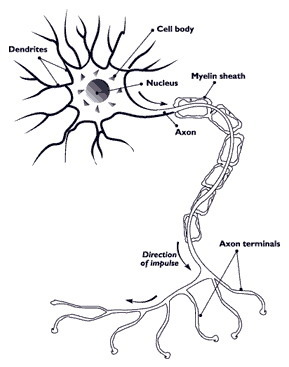
Nerve axon with myelin sheath (Photo credit: Wikipedia)


June 24, 2013
Tuesday Poem – Chocolate Hearts
inside that special separate world
for half a precious hour
we are not lawyers, marketers or policy analysts
not husbands, mothers or discarded lovers
we are Wellington coffee drinkers
on our first of the day
focusing carefully on the task at hand
a leisurely stirring
the spreading of butter on muffin
warmth and froth
and chocolate hearts on our saucers
.
.
.

Chocolate Heart On Coffee (Photo credit: Mark Lincoln)
.
.
.
I wrote this poem quite a while ago and it was later commended in the Whitireia ‘Eat Your Words’ cafe poetry competition in 2010. It was inspired by a cafe I used to go to with Peter every morning before we started work, when I was working in Manners St. The cafe was Sardine and is no longer there. They did great muffins and great coffees, played good music and were always friendly. Wellington is a city that runs on coffee – hats off to all those lovely baristas.
For other Tuesday poems, visit the Tuesday poem hub.


June 3, 2013
Robin Hyde at the Tuesday Poem hub
I’m editor of the main Tuesday poem hub this week and have chosen an unititled, unfinished Robin Hyde poem that begins “If you have linen women”. You can read it and find the links to other Tuesday poems here.


May 6, 2013
Tuesday Poem – Memory of sun ebbs from the heart, by Anna Akhmatova
Memory of sun ebbs from the heart.
Memory of sun ebbs from the heart.
Grass fades early.
Wind blows the first snowflakes
Barely, barely.
Freezing water can’t flow
Along these narrow channels.
Nothing happens here, oh
Nothing can happen.
A willow against the sky
Spreads its transparent fan.
Better perhaps, if I
Hadn’t accepted your hand.
Memory of sunlight ebbs from the heart.
What’s this? Darkness? Perhaps! …
In the night
Winter has overcome us.
Translated by A. S. Kline © 2005, 2012
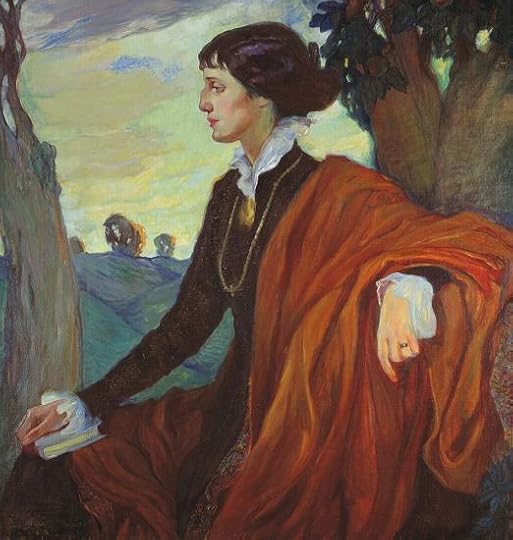
Anna Akhmatova (the pen name of Anna Andreyevna Gorenko, 1889 – 1966) was a Russian modernist poet. Her work often dealt with the difficulties of living under Stalinism, during which two of her husbands were killed and her son jailed. Her poetry was banned by Stalinist authorities for decades.
There are more Tuesday Poems here.


April 8, 2013
Tuesday Poem – Chant for the Return Home, by Mary Cresswell
CHANT FOR THE RETURN HOME
The seven seas aren’t what we thought they would be
packed to the gunnels with rum and rebellion.
Our tall ships fly home, flat tack in the wind.
We’ll alight and seek life in the tussocky rocks,
seek fewmets and footprints and niblets of spoor.
With no forest for shelter we’ll bivouac in the wind.
Tough trees lie flat; they clutch at the cliffs,
the grasses grow grasping and desperate —
nothing withstands the impact of the wind.
We grab hands and race for the deepest cave
hoping to lie in the light of our warmth
with the ghost of our hope left intact by the wind.
But gone means gone — we can’t sail back on the wind.
The black dog’s ears go flat in the wind.
[First published in The Ghazal Page, 2012(1).]
Mary Cresswell is a poet and science editor who lives on New Zealand’s Kapiti Coast. Originally from Los Angeles, her writing has been published widely in New Zealand, Australian, Canadian, US and UK literary journals. Her poetry collection Trace Fossils (first runner-up for the inaugural 2008 Kathleen Grattan award) was published by Steele Roberts in 2011 and her collection of satiric verse, Nearest and Dearest, in 2009. Mary was also one of four poets who co-authored Millionaire’s Shortbread (University of Otago, 2003).
This week’s poem is a ghazal (sounds like guzzle) – originally an ancient Persian form.
The Guardian has this to say:
“The strict ghazal is composed of five or more regular couplets. The couplet is called a sher, and must be self-contained. The second line of each ends with a refrain of one or a few words, known as the radif. This is preceded by the rhyme, the qaafiya. In the first couplet both lines end in the rhyme and refrain, so the rhyme scheme is AA BA CA, etc. The last sher contains the poet’s signature, his name or a variant thereof.”
Modern poets writing in English have experimented with the form (Mary’s is a tercet ghazal with a deliberately empty line in the last stanza) but it’s probably fair to say that most consist of self-contained couplets, often exploring themes of love and mysticism.
Mary is editing the next issue of The Ghazal Page (see her Call for Submissions which I posted recently).
More Tuesday poems here, where you can also watch the jointly written third birthday poem unfolding.


April 4, 2013
Call for Submissions – The Ghazal Page
Ghazals are welcomed for a special challenge issue of The Ghazal Page (ed. Gene Doty) (www.ghazalpage.net) on the theme WATER. Guest editor for this issue is Wellington poet Mary Cresswell; 15 April – 31 May 2013 submission dates. Please use the journal’s contact link (see below).
Mary says:
Look for inspiration from water, wherever it is, whatever it’s doing and who/what it’s doing it to – storms, glaciers, ships and steam engines, boiling into an undersea trench, springing from desert rock, falling as snow. Big surf. Tears. Dark streaks down the sides of subway tunnels. If water could speak we might know why it’s always moving… Perhaps use water-words as a radif – perhaps tercet (rather than couplet) ghazals – consider Arabic as well as Persian forms. Ghazals can be unpublished or published (give details of previous publication as well as permission for use).
To prime your skill with the ghazal form, check through the excellent collection of essays and articles on the The Ghazal Page website. Also see Carol Rumens’ Guardian article http://www.guardian.co.uk/books/booksblog/2008/mar/17/aglutofghazals, introducing ghazals by Mimi Khalvati. To see how the form can vary, read Natasha Trethewey’s ‘Miscegenation’ (http://www.cstone.net/~poems/miscetre.htm ) and Thomas Hardy’s ‘The Mother Mourns’ (http://www.daypoems.net/plainpoems/1017.html ).
Please submit (http://www.ghazalpage.net/ information/submitting.html) between 15 April and 31 May 2013, and follow the journal submission instructions. Subject line: “Water issue”.


March 28, 2013
A bit feral (Alice Spider interview by Mary Macpherson)
Poet, photographer & blogger Mary Macpherson has posted an interview with me on her blog, about The Continuing Adventures of Alice Spider which was published recently by Anomalous Press. You can read the interview here:
http://marymacphoto.wordpress.com/2013/03/29/wellington-poet-published-in-us/
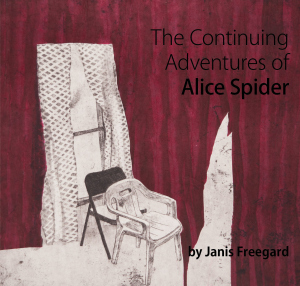


March 22, 2013
Poetry & Gender in New Zealand Publishing – an occasional series
News in Brief: the boys are still winning; the girls haven’t yet caught up.
Since 2008, I’ve been looking at the Journal of Commonwealth Literature’s annual summary of what was published in New Zealand the previous year. Despite a general perception that more female poets are being published here, it’s actually the other way around. Here’s a little table showing that, in each year since 2008, male poets account for around six in every ten poetry books published in New Zealand; female poets for about four.
F
M
2008
36%
63%
2009
43%
57%
2010
42%
58%
2011
43%
57%
Where it gets interesting, is breaking the books into those published by “larger” poetry publishers (and in here I’ve included AUP, VUP, Steele Roberts & Random House – who put out Hone Tuwhare’s collection in 2011) and those published by smaller presses (such as Headworx, Seraph Press, Titus and Earl of Seacliffe). Women outnumber men at the larger presses (18 female poets and 15 male poets in 2011), while men outnumber women at the smaller presses (9 female poets and 22 male poets in 2011 + one person I couldn’t put into a gender box from their initials). So that probably explains why people have a sense that more women are being published. It would be interesting to look at sales figures too.
Previous posts on the matter:
http://janisfreegard.com/2012/04/03/poetry-gender-in-new-zealand-publishing-2008-2010-4/
http://janisfreegard.com/2011/07/29/poetry-gender-in-new-zealand-publishing-part-2/
http://janisfreegard.com/2010/02/06/poetry-gender-in-new-zealand-publishing/
Disclaimer: I haven’t checked all the books listed by the Journal of Commonwealth Literature, but I did notice they had included at least one novel on their list of poetry books (which I omitted from the analysis) – Mark Stephenson’s No Second Chance.
And because this is the internet, here is a picture of a cat.



